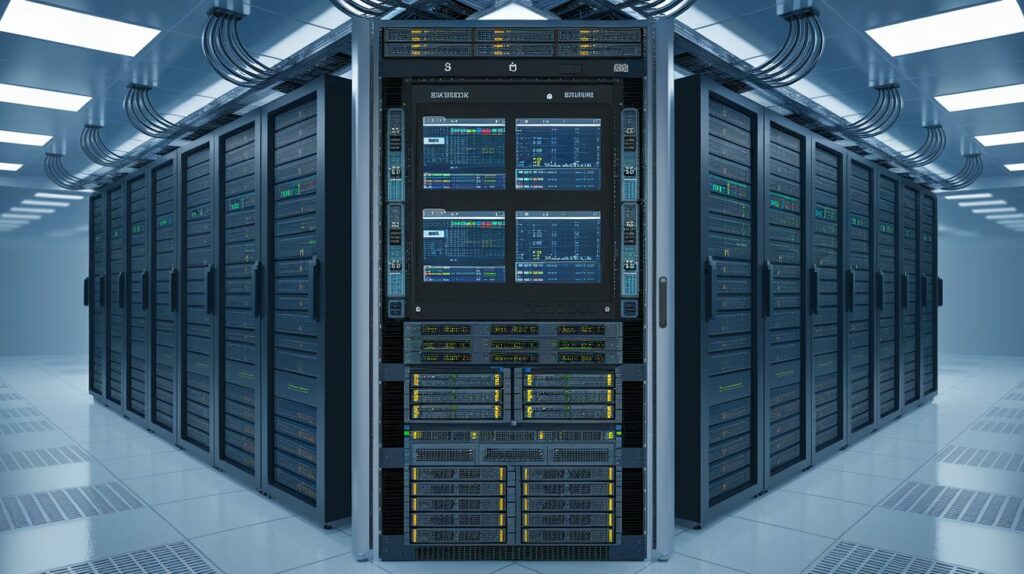
Residential vs. Datacenter Proxies
The main differencies between Residential and Datacenter Proxies lies in the source of their IP addresses. Let’s break down the key differences to better understand how each type functions and which one suits your needs.
Residential Proxies:
- Legitimacy: Residential proxies use IP addresses provided by actual ISPs, making them appear more authentic. Since datacenter proxies are often created in bulk by cloud service providers, they are easier to detect and blacklist, especially when sourced from unreliable vendors. Residential proxies, on the other hand, offer the option to maintain a consistent IP when necessary, adding to their legitimacy.
- Lower Risk of Blacklisting: Because residential proxies use real IP addresses tied to physical locations, they are harder for websites to detect and blacklist. This makes them effective for tasks like web scraping, where a low risk of detection is crucial.
- Higher Cost: Due to the effort required to acquire and maintain residential proxies, they tend to be more expensive. Their legitimacy and reliability often justify the higher price point, especially for sensitive or long-term projects.
Use Cases for Residential Proxies
Residential proxies have broad applications across various industries. Here are some of the most common use cases:
- Social Media Management
Residential proxies enable secure management of multiple social media accounts, reducing the risk of detection or bans. This is particularly useful for marketers and influencers who need to maintain a presence across different platforms.
- Market Analysis
Businesses use residential proxies to gather local market data, track consumer behavior, and monitor trends in specific regions. These insights help companies make informed decisions and tailor strategies for different markets.
- Price Monitoring
For e-commerce and retail businesses, residential proxies streamline real-time price monitoring. They allow companies to collect accurate pricing information from various websites without being blocked, ensuring a competitive edge.
- Brand Protection
Residential proxies play a vital role in safeguarding brand integrity. They help monitor online activities, identify unauthorized use of intellectual property, and prevent counterfeit product listings, ensuring a company’s reputation remains intact.
Datacenter Proxies:
- Non-Physical IPs: Datacenter proxies are synthetic and not tied to a physical location, which makes them easier for websites to identify. However, they still hide your real IP and provide anonymity when bought from a reputable provider. Private datacenter proxies can minimize the risk of being blacklisted, making them suitable for market research and other non-sensitive tasks.
- High Speed: Datacenter proxies are known for their fast speeds and performance. This makes them ideal for projects that require quick turnarounds. To get the most out of datacenter proxies, it’s essential to purchase from a reliable provider and understand how to configure them properly. Providers often offer detailed documentation and expert support to help maximize performance.
- Budget-Friendly: If you’re looking for an affordable option or need to buy proxies in bulk, datacenter proxies are a great choice. While they are less expensive than residential proxies, they can still offer good security and speed, provided you source them from a trustworthy vendor.
Use Cases for Datacenter Proxies
Datacenter proxies are versatile tools suited for a variety of applications. Here are some of the most common use cases:
- Web Scraping
Datacenter proxies are invaluable for large-scale web scraping projects. They enable automated bots to visit websites and extract data efficiently while cycling through different IP addresses. This makes the process faster, more cost-effective, and less likely to trigger detection mechanisms.
- Bypassing Geo-Restrictions
When accessing region-locked content, users may encounter restrictions or blocks. Datacenter proxies provide alternative IP addresses from various data center locations, allowing users to bypass these barriers and gain access to the desired content. - SEO Tasks
SEO professionals rely heavily on datacenter proxies to optimize their workflows. These proxies integrate seamlessly with tools designed for collecting SEO-related data, such as local organic search results. They help streamline data collection, allowing for faster and more efficient analysis.
- Ad Verification
Marketing and advertising agencies use datacenter proxies to verify that online ads are displayed correctly and targeted to the right audience. They also help detect fraudulent activities, monitor ad performance across regions, and improve the effectiveness of advertising campaigns.
Conclusion
Both residential and datacenter proxies effectively hide your IP address, but residential proxies offer greater security due to their authenticity, making them harder for websites to detect. However, datacenter proxies are still a valuable option, especially when sourced from a reliable provider. They deliver sufficient security, faster speeds, and are a more budget-friendly solution for many use cases.
Try our proxy panel at https://panel.dslrentals.com